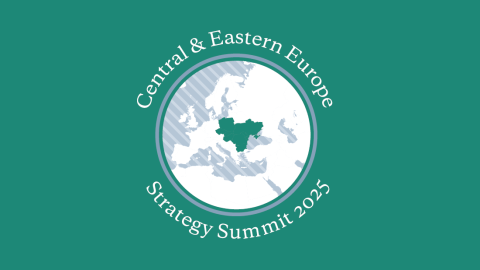Last week titans of industry, heads of state and other influencers gathered in Davos, Switzerland for their annual convocation to address the world’s environmental, economic and social challenges, including climate change. As young activist Greta Thunberg berated her elders for inaction on global warming, wildfires raging half a world away in Australia underscored the urgency of her message.
The food industry is under fire for contributing to many of the problems that trouble world leaders the most, yet only a few companies and industry sectors are making a concerted effort about dealing with them.
Obesity, under-nutrition and now climate change are the three horsemen of a coming food industry apocalypse. Like the biblical story (which featured four horsemen), the food industry’s version is a dire warning to traditional food suppliers. Unless food manufacturers unite as one group, with Davos-like influence and scope, to set higher standards for their products, they will not escape the wildfires of regulation, public scorn and competition that will lay waste to their businesses and threaten their survival.
Respected and compelling voices are blaming the food industry for its negative impact on the world’s environment and public health. The first shot across the bow came a year ago, from a Lancet Commission Report that called obesity, under-nutrition and global warming a “syndemic,” with Big Food companies shouldering much of the blame. This report has since become the rallying cry for public health advocates and activists to attack the food industry and drive tectonic change in the sector.
**Obesity** remains a stubborn problem despite billions spent to reverse the epidemic. In the U.S., adult obesity rates now exceed 25% in 48 states, and 35% in nine of them. The American College of Cardiology estimates that almost half of U.S. adults — 49% — will be obese by the end of this decade. Globally, the combined number of overweight and obese adults is projected to reach 3.28 billion():https://www.researchgate.net/publication/5244304_Global_burden_of_obesity_in_2005_and_projections_to_2030 by 2030. More studies are proving the link between obesity and excessive consumption of fast foods and other products high in calories and sugar, such as "soft drinks and sweet baked goods.
Under-nutrition, especially in more low- to middle-income countries (LMICs), is unexpectedly related to obesity. It is responsible for about 45% of deaths among children under five. A troubling paradox is emerging in Sub-Saharan Africa and South Asia, where one in three families has a stunted child and an overweight mother. According to Francesco Branca of the World Health Organization, an aggressive food sector is pushing cheap “junk” foods with high levels of calories, sugar, salt and fats in LMICs, and they are now the target for more taxes and labeling restrictions to limit their consumption.
Climate change is the crisis that threatens all of us. The Lancet Commission report points out that agriculture consumes about 40% of global land, while food production contributes about 30% of global greenhouse gas emissions. Changes in food production practices could cut agricultural greenhouse gas emissions by 10% in 2050, and wide adoption of plant-based diets could further reduce agricultural emissions by up to 80%, the authors say.
The Lancet Commission has recommended several systemic changes to head off the three crises. It calls for taking the fox out of the henhouse by limiting Big Food’s role in shaping public health policy, so that governments can prioritize preserving the environment and improving health today and in the future. It calls for food companies to shift from a short-term profit focus to sustainable profit models that explicitly include benefits to society and the environment. And it calls for sharply reducing and restricting the sale, promotion and consumption of “junk” foods high in calories, sugar, sodium and saturated fats.
Given the severity of these accusations, I’m troubled that the food industry as a whole isn’t listening. Yes, several packaged goods firms like Unilever and PepsiCo have stepped up to address plastic package waste and industry sectors like confectionery and (even) soft drinks have committed to reduce calories and portion sizes, but the industry as a whole (manufacturers, food retailers and restaurant chains) has not coalesced around addressing these issues. Many are conducting business-as-usual and letting the biggest, most visible targets like Coca-Cola and McDonald’s take the hits. Others are clinging to the “four Ps” of marketing (Product, Price, Place and Promotion) to save them. But they won’t. With abundant health and climate information available online, today’s consumers are no longer so easily persuaded.
Without action, their adversaries will continue to pick them apart over the next decade. Respected journals and the mainstream press will continue to spotlight industry’s role in public health crises. Food activists and their social media machines will amplify the messages and deliver them straight to the hearts and minds of health-conscious and environmentally woke consumers everywhere.
The despised soda taxes will spread to junk foods. Black “stop sign” warnings on food packages like they have in Chile will alert consumers to less healthy options. Small but virtuous new companies will continue to poach health-conscious customers. And Big Food can expect plummeting market valuations as these problems erode their sales and undermine their entrenched ways of manufacturing, marketing, distributing and selling food.
Big Food won’t be able to market or lobby its way out of this apocalypse.
To head it off, food sellers must eliminate their parochial boundaries and think and act like one industry. The industry’s current major divisions – packaged food manufacturers, grocery stores, restaurant chains, convenience stores – do not lend themselves to tackling big overarching crises. Each sector focuses on its own issues. Meeting the challenge of reversing food-related climate change, obesity and under-nutrition is daunting and requires an “all in” effort.
This calls for one overarching body, perhaps a “Global Food Industry Alliance,” to deal with the mega-issues described here, with enough authority to get everyone in line to make meaningful change. We need regular summits similar to Davos that put executives from all industry sectors in the same room to set strong agendas and measure progress.
To address its contribution to reversing obesity, under-nutrition and global warming, this new alliance must launch its own equivalent of the Paris Climate Accord. Hard goals by decade must be set to meet the Commission’s 2050 objective to reduce red meat and sugar consumption by 50% and to double the amount of fruits, vegetables, nuts and legumes consumed.
Unless all food industry sectors come together, own these problems and act to fix them, the wildfires that started with the Lancet Commission a year ago will only grow stronger and irreparably harm the category.
Read in Forbes



















